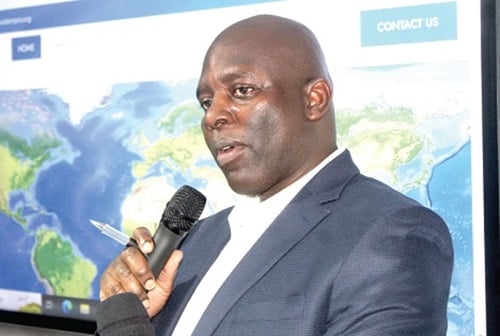Paragraph 1: A New Beginning for Mahama?
Dr. John Osae-Kwapong, a research fellow at the Ghana Centre for Democratic Development (CDD-Ghana) and a seasoned political analyst, has provided an initial assessment of President John Mahama’s performance during his first 102 days back in office. Dr. Osae-Kwapong observes a discernible shift in Mahama’s approach compared to his previous term, which ended with an electoral defeat in 2016. This suggests a conscious effort by the President to redefine his leadership style and set a new course for his administration. The early days of a presidency are often crucial in establishing the tone and direction of a government, and Mahama appears to be acutely aware of this. The question remains whether this new approach will translate into tangible improvements for Ghana and resonate with the electorate.
Paragraph 2: Addressing Key Concerns and Campaign Promises
One key area where Mahama has attempted to differentiate himself from his past is in the composition of his cabinet. Dr. Osae-Kwapong highlighted Mahama’s commitment to fulfilling his campaign pledge of limiting the number of ministers to 60. This move is seen as a response to previous criticisms regarding the size and perceived inefficiency of his previous administration. Furthermore, Mahama has tackled the controversial E-levy, an unpopular tax policy introduced by the previous government. While the specifics of how the E-levy issue will be addressed remain to be seen, the willingness to engage with this contentious issue demonstrates a responsiveness to public concerns. These initial steps are presented as evidence of a more streamlined and responsive government, focused on key priorities.
Paragraph 3: Signaling Priorities Through the Budget
Beyond immediate actions, Dr. Osae-Kwapong points to the government’s budget as a clear indication of its long-term vision and spending priorities. The budget, a fundamental document outlining government policy and financial allocation, provides a roadmap for the administration’s intended direction. By analyzing the budget, one can discern the areas where the government intends to focus its resources and the overall economic philosophy guiding its decision-making. This emphasis on the budget underscores the importance of fiscal policy in achieving the administration’s goals and provides a framework for evaluating its performance over time.
Paragraph 4: The Need for a Longer-Term Perspective
Despite these initial positive signs, Dr. Osae-Kwapong cautions against drawing definitive conclusions based on just over three months in office. He emphasizes that a more comprehensive evaluation of the Mahama administration’s effectiveness will require a longer timeframe. While early actions can be indicative of intent, the true test of a government lies in its ability to implement its policies effectively and achieve tangible results. Therefore, a more complete assessment will necessitate observing the government’s performance over a more extended period, allowing time for policies to take effect and their impact to be assessed.
Paragraph 5: Unresolved Matters and Challenges Ahead
While acknowledging the positive steps taken by the Mahama administration, Dr. Osae-Kwapong also acknowledges the existence of numerous outstanding issues that require attention. Governing a nation invariably involves grappling with a complex web of challenges, and Mahama’s second term is unlikely to be an exception. These unresolved matters represent potential obstacles to the administration’s success and will require careful consideration and strategic action to overcome. The ability to effectively address these challenges will be a key determinant of the government’s overall performance and its ability to fulfill its promises to the Ghanaian people.
Paragraph 6: A Framework for Governance and Future Assessment
In conclusion, Dr. Osae-Kwapong’s preliminary assessment of President Mahama’s return to power suggests a conscious effort to chart a different course compared to his previous tenure. The focus on capping the number of ministers, addressing the controversial E-levy, and presenting a clear budget framework are seen as initial positive steps. However, a definitive evaluation of the administration’s success will require a longer time horizon, allowing for a more thorough assessment of its policies and their impact. The unresolved issues facing the government represent ongoing challenges that will need to be addressed effectively to ensure the administration’s long-term success and fulfill the expectations of the Ghanaian populace. The coming months and years will provide a clearer picture of whether Mahama’s new approach can deliver the promised change and improve the lives of Ghanaians.














